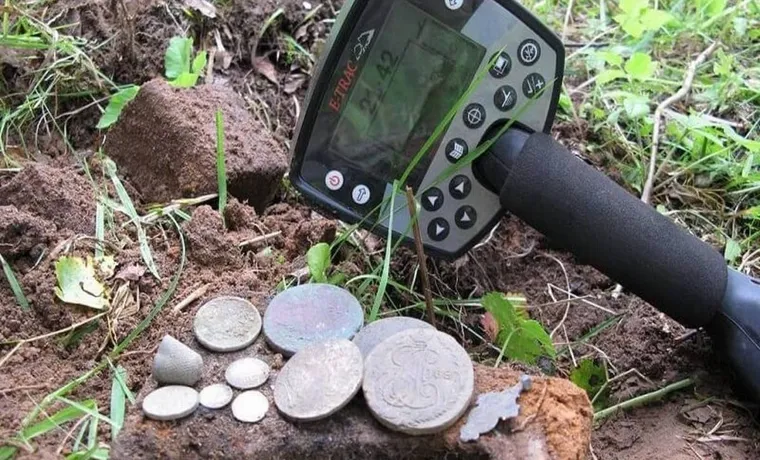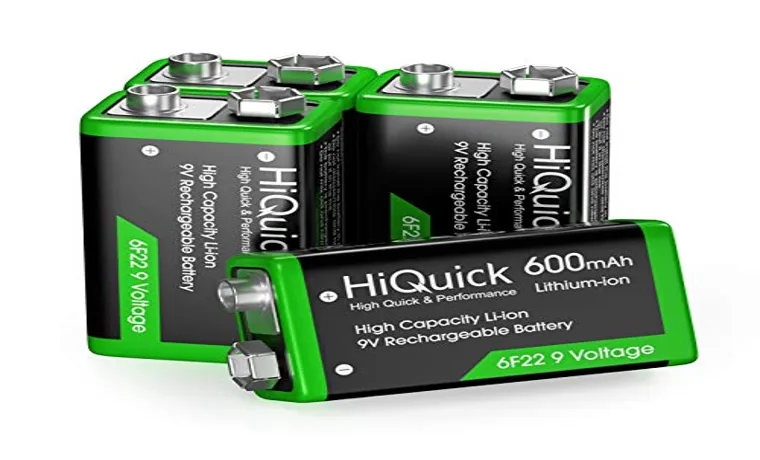What is it called when you use a metal detector: A Guide to Metal Detecting
Welcome to the exciting world of treasure hunting! If you’ve ever dreamed of discovering hidden treasures buried beneath the earth’s surface, then metal detection is the perfect hobby for you. Whether you’re an adventure seeker or history enthusiast, the art of metal detection offers endless possibilities and surprises. Picture yourself walking through a serene beach, guided only by the sound of crashing waves and the rhythmic sweeping of your metal detector.
Suddenly, a high-pitched beep breaks the silence, filling you with anticipation and curiosity. Could this be it? Could this be the moment you unearth a centuries-old relic, lost and forgotten by time? Metal detection is not just a hobby; it’s a journey of exploration and discovery. From ancient artifacts to valuable coins, the possibilities are as vast as your imagination.
🌱 Stay Connected with Our Gardening Community! 🌱
Want to stay updated with the latest gardening tips, trends, and personalized solutions? Subscribe to our newsletter at BackyardLord.com! Our team of experts and fellow gardening enthusiasts will keep you informed and inspired on your gardening journey.
Why Subscribe to Our Newsletter?
- 🌿 Get customized gardening solutions delivered straight to your inbox.
- 🌿 Connect with like-minded individuals passionate about gardening.
- 🌿 Share your knowledge and learn from others' experiences.
- 🌿 Stay updated on the latest gardening trends, tools, and techniques.
Don't miss out on valuable gardening insights and updates! Subscribe to our newsletter today and let's grow together.
Every signal holds a story waiting to be unravelled, a connection to a bygone era. As you dive deeper into this fascinating hobby, you’ll find yourself constantly amazed by the hidden treasures just waiting to be discovered. Just like a painter with their canvas or a sculptor with their clay, a treasure hunter wields their metal detector as their tool for creation.
With each swing, you’re crafting a story – a story that spans centuries and connects you to the past. And just like any other art form, it takes time, patience, and practice to master the skill of metal detection. But the rewards of this artform are immeasurable.
Imagine the thrill of unearthing a rare coin that has been lost to history or stumbling upon a hidden cache of jewelry. These moments of triumph are what keep treasure hunters hooked and coming back for more. The world of treasure hunting is filled with excitement, mystery, and a sense of possibility.
It’s about embarking on an adventure, not knowing what you might find but holding onto the hope that something extraordinary awaits. So grab your metal detector, don your explorer’s hat, and join the ranks of those who have turned a simple hobby into a lifelong passion. Get ready to uncover hidden treasures, embark on historical quests, and experience the thrill of the hunt.
Understanding the Basics of Metal Detection
When you use a metal detector, the act is commonly referred to as metal detecting. Metal detecting is a popular hobby and activity where individuals use a specialized device called a metal detector to search for metallic objects that may be buried or hidden underground. These metal detectors work by emitting a electromagnetic field and detecting any disturbances or changes in that field when it comes into contact with a metallic object.
This can be useful in a variety of scenarios such as searching for buried treasures, locating lost jewelry, or even in archaeological excavations. Metal detecting can be an exciting and rewarding pastime, as you never know what hidden treasures or valuable items you may uncover.
The Science Behind Metal Detection
metal detection, science of metal detection, metal detector, basics of metal detection

Different Types of Metal Detectors
metal detectors The world of metal detectors can be quite fascinating and diverse. There are various types of metal detectors available, each designed for specific purposes and environments. Understanding the basics of how metal detection works can help you choose the right device for your needs.
Metal detectors use electromagnetic fields to detect metallic objects buried underground or hidden within objects. When the detector’s coil emits a magnetic field, it creates an electrical current in any nearby metallic object. This current then produces its own magnetic field, which the detector picks up and alerts the user to the presence of metal.
From hobbyist treasure hunters to security professionals, metal detectors play a crucial role in a range of industries and activities. Whether you’re searching for historical artifacts or ensuring security, understanding the different types of metal detectors can help you make an informed decision.
Common Uses of Metal Detectors
metal detectors
Metal Detecting for Treasure Hunting
When you use a metal detector to search for buried treasures or artifacts, it is called metal detecting. Metal detecting is a popular hobby and a form of treasure hunting that has been around for many years. It involves using a metal detector, which is a handheld device that emits a electromagnetic field to detect metal objects underground.
This field will cause any nearby metal objects to create a response, such as a beep or a change in the detector’s display. Metal detecting can be done in a variety of locations, including beaches, parks, fields, and even old battlefields. It is an exciting pastime that allows you to explore the outdoors and potentially find valuable and historical items.
So, if you’re interested in uncovering hidden treasures and experiencing the thrill of the hunt, grab a metal detector and start metal detecting today!
Unearthing the History: Metal Detecting in Archaeology
metal detecting in archaeology, treasure hunting, history, artifacts
Finding Buried Treasures: Metal Detecting as a Hobby
Buried treasures, mystical and elusive, have long captivated the imagination of adventure seekers. And what better way to channel your inner Indiana Jones than through the exciting hobby of metal detecting? Metal detecting for treasure hunting may conjure up images of old coins, glittering jewelry, or even forgotten artifacts waiting to be unearthed. It’s a hobby that blends the thrill of exploration, history, and the possibility of striking it rich.
Imagine the satisfaction of hearing that distinctive beep, and digging up a genuine piece of history that has been buried for decades, or even centuries. Metal detecting is not just a hobby; it’s a journey into the past, a chance to connect with our ancestors and discover the hidden stories that lie beneath our feet. So grab your metal detector, put on your adventure hat, and get ready to embark on a treasure-filled quest like no other.
Let the thrill of the hunt begin!
Metal Detecting for Safety and Security
metal detecting, safety and security, treasure hunting, metal detectors
Tips and Tricks for Successful Metal Detection
When you use a metal detector, the process is called metal detecting. Metal detecting is a popular hobby for many people around the world, as it allows them to search for hidden treasures beneath the ground. Whether you’re searching for gold nuggets, ancient artifacts, or lost coins, metal detecting can be a thrilling and rewarding experience.
To increase your chances of success, there are a few tips and tricks you can follow. Firstly, it’s important to research and choose the right metal detector for your needs. Different detectors are designed for different types of metal detecting, so make sure to select one that is suitable for the type of treasure you are searching for.
Additionally, it’s helpful to learn about the history and geography of the area you plan to detect in. This can give you valuable insight into potential hotspots for finding hidden treasures. Once you start detecting, be sure to go slowly and thoroughly cover each area.
Take your time and listen carefully for any signals from your metal detector. Finally, don’t be afraid to dig! Real treasures are often buried beneath the surface, so be prepared to dig and explore to uncover your finds. Metal detecting can be an exciting and rewarding hobby, and with the right techniques and equipment, you’ll increase your chances of finding hidden treasures.
So grab your metal detector and start your treasure hunt today!
Choosing the Right Metal Detector
metal detector, tips and tricks, choosing the right metal detector So you’ve decided to try your hand at metal detecting, but where do you start? Choosing the right metal detector can make all the difference when it comes to successful treasure hunting. One of the first things to consider is the type of metal detecting you plan to do. Are you interested in searching for coins on the beach, or perhaps uncovering buried relics in old fields? Different types of metal detectors are designed for specific purposes, so it’s important to choose one that suits your needs.
Another factor to consider is the level of experience you have with metal detecting. If you’re a beginner, you may want to start with a more user-friendly model that is easy to operate and provides clear target identification. As you gain more experience and confidence, you can upgrade to more advanced models with additional features.
Understanding Signals and Tones
metal detection, signals and tones, tips and tricks
Identifying Targets and Digging Techniques
metal detection techniques Metal detection can be an exciting and rewarding hobby, but it requires some knowledge and skill to be successful. One of the key aspects of metal detection is identifying targets and knowing where to dig. This involves understanding the types of objects that are likely to be found in a particular area and using the right techniques to locate them.
One tip for identifying targets is to pay attention to the signals produced by the metal detector. Different objects can produce different types of signals, so learning to interpret these signals can help you determine what you may have found. Another technique is to use a pinpointer, which is a handheld device that can help you narrow down the location of a target once you have detected it.
This can be especially useful when the object is buried deeper in the ground. When it comes to digging, it is important to be respectful of the environment and obtain permission to search on private property. Start by using a small hand digger or trowel to carefully remove the top layer of soil.
As you dig deeper, using a metal detector scoop can help you sift through the soil and locate the target more easily. Remember to fill in any holes you dig and leave the area as you found it. By using these tips and techniques, you can improve your chances of success and make the most out of your metal detection adventures.
Conclusion
When you embark on a quest with your trusty metal detector in hand, searching for hidden treasures below the Earth’s surface, you are participating in a delightful activity known as none other than “detecting metal.” Yes, it may lack the flair and flamboyance of more extravagant pursuits, but let’s be honest, simplicity can sometimes be the epitome of sophistication. So, my fellow adventurers, embrace the charm of this modest moniker as you embark on your next expedition, lest you be distracted by the allure of a dazzlingly ostentatious title.
Remember, when you’ve got a metal detector in hand, there’s no need for convoluted names – just let the beeping and bleeping guide you to a world of hidden riches and a thoroughly entertaining dose of exercise.”
FAQs
How does a metal detector work?
A metal detector works by generating a magnetic field that interacts with metallic objects. When the magnetic field is disturbed by a nearby metallic object, it creates an electromagnetic signal that is detected by the metal detector.
What are the different types of metal detectors?
There are several types of metal detectors, including beat frequency oscillation (BFO), very low frequency (VLF), pulse induction (PI), and multi-frequency/multi-IQ detectors. Each type has its own advantages and can be used for different purposes.
What is the purpose of using a metal detector?
Metal detectors are primarily used to locate and identify hidden metallic objects. They are commonly used for treasure hunting, archaeology, security screening, and industrial applications such as finding buried pipes or wires.
Can metal detectors detect all types of metals?
Metal detectors can detect most types of metals, including common ones like iron, aluminum, copper, and gold. However, some metals like stainless steel or alloys with low conductivity may be more difficult to detect.
Are metal detectors waterproof?
Not all metal detectors are waterproof. Some models are designed for land use only, while others are specifically designed for underwater metal detecting. It’s important to consider the environment in which you’ll be using the metal detector and choose a suitable model.
Can metal detectors be used in all terrains?
Metal detectors can be used in various terrains, including beaches, forests, parks, and even underwater. However, certain terrains may present challenges, such as highly mineralized soils or areas with a lot of trash or interference, which can affect the performance of the metal detector.
Are metal detectors easy to use?
Metal detectors can vary in complexity, but many models are designed to be user-friendly and beginner-friendly. They often come with adjustable settings and intuitive controls, making them relatively easy to operate even for beginners. However, mastering advanced techniques and understanding different signals may require more experience and practice.






